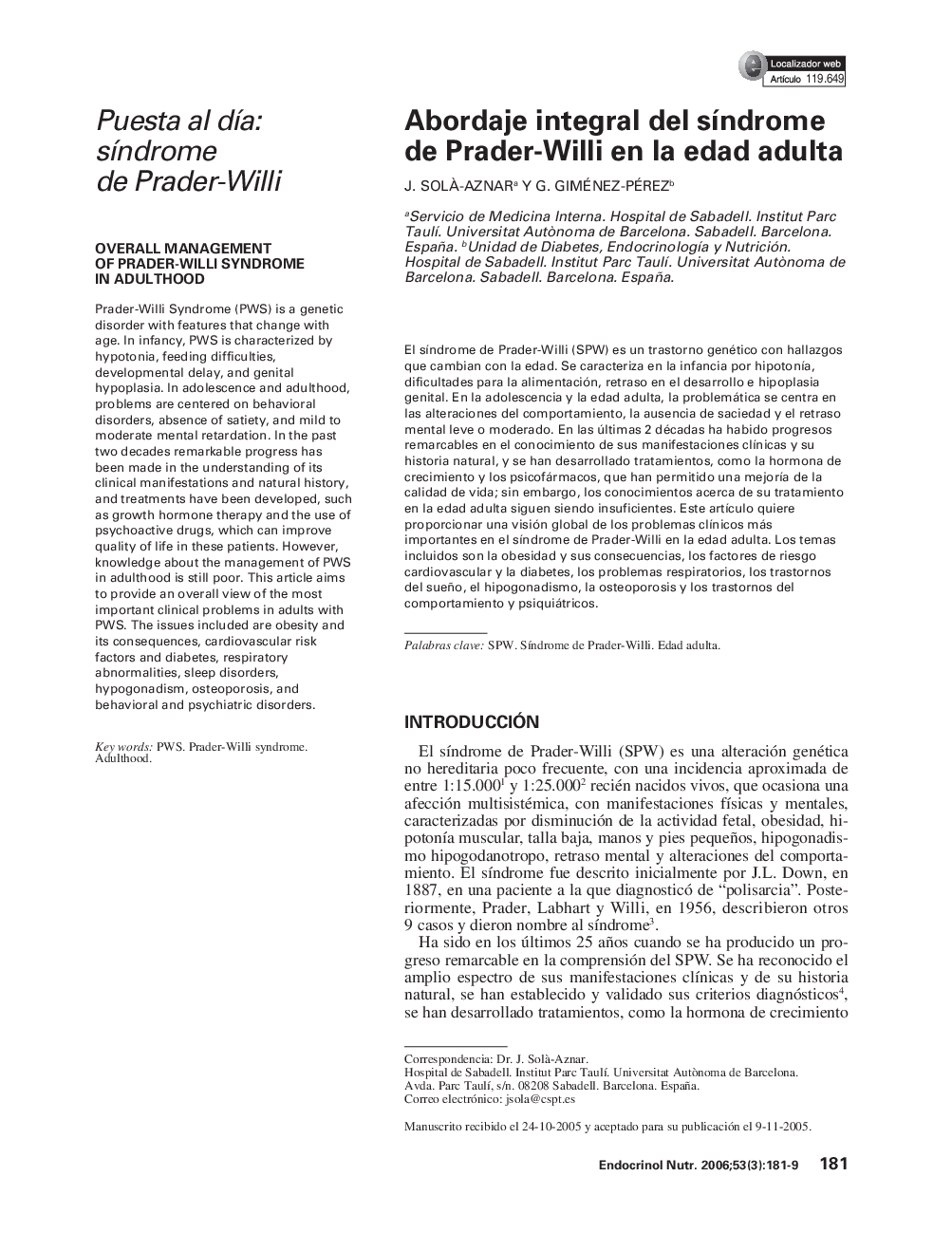| Article ID | Journal | Published Year | Pages | File Type |
|---|---|---|---|---|
| 2774659 | Endocrinología y Nutrición | 2006 | 9 Pages |
Abstract
Prader-Willi Syndrome (PWS) is a genetic disorder with features that change with age. In infancy, PWS is characterized by hypotonia, feeding difficulties, developmental delay, and genital hypoplasia. In adolescence and adulthood, problems are centered on behavioral disorders, absence of satiety, and mild to moderate mental retardation. In the past two decades remarkable progress has been made in the understanding of its clinical manifestations and natural history, and treatments have been developed, such as growth hormone therapy and the use of psychoactive drugs, which can improve quality of life in these patients. However, knowledge about the management of PWS in adulthood is still poor. This article aims to provide an overall view of the most important clinical problems in adults with PWS. The issues included are obesity and its consequences, cardiovascular risk factors and diabetes, respiratory abnormalities, sleep disorders, hypogonadism, osteoporosis, and behavioral and psychiatric disorders.
Related Topics
Life Sciences
Biochemistry, Genetics and Molecular Biology
Clinical Biochemistry
Authors
J. Solà -Aznar, G. Giménez-Pérez,
